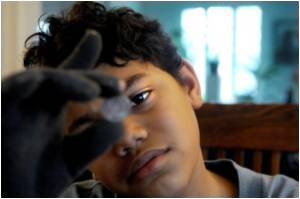Children with abusive mothers experience increased stress, researchers have discovered, using a mouse model.

Using this model of attachment may provide clues to understanding attachment in children with various conditions of care.
The authors hope that this model will help us understand the neurobiological origins of psychopathology stemming from abuse, and possibly facilitate the development of treatments and/or interventions for victims of early-life trauma.
In the animal model of infant abuse, they took into consideration the unique infant cccthat ensures infant rats' attachment to their caregiver regardless of the quality of care received.
Upon this background, the pups responded to a natural maternal odour or an artificial odour that was conditioned as a new maternal odour through pairings with either a positive stimulus (the stroking) or a negative stimulus (the shock).
Exposure to both their mother's natural scent and the conditioned maternal scent evoked normal social responses, including those related to attachment.
Advertisement
In these cases, pups with an abusive attachment showed disrupted social behaviour with the mother and increased engagement of the amygdala, a region of the brain involved in regulating stress and emotion.
Advertisement
Dr. John Krystal, Editor of Biological Psychiatry, also said: "It is interesting that the amygdala is primarily activated when abusive behaviour of the mother is combined with a reaction within the infant, i.e., an increase in levels of the stress hormone corticosterone. Thus, the authors of this study elegantly highlight the dyadic nature of the mother-infant relationship."
The study is published in a new Biological Psychiatry.
Source-ANI















